Introduction
Welcome to the definitive guide on Dell laptop charger– your go-to resource for unlocking seamless power experiences. In this concise read, we unravel the mysteries behind choosing the perfect Dell charger, optimizing performance, and ensuring longevity. If you’re eager to power up your Dell laptop confidently and efficiently, you’re in the right place. Let’s dive into the essentials and make charging your Dell laptop hassle-free.
Section 1: Choosing the Right Dell Charger
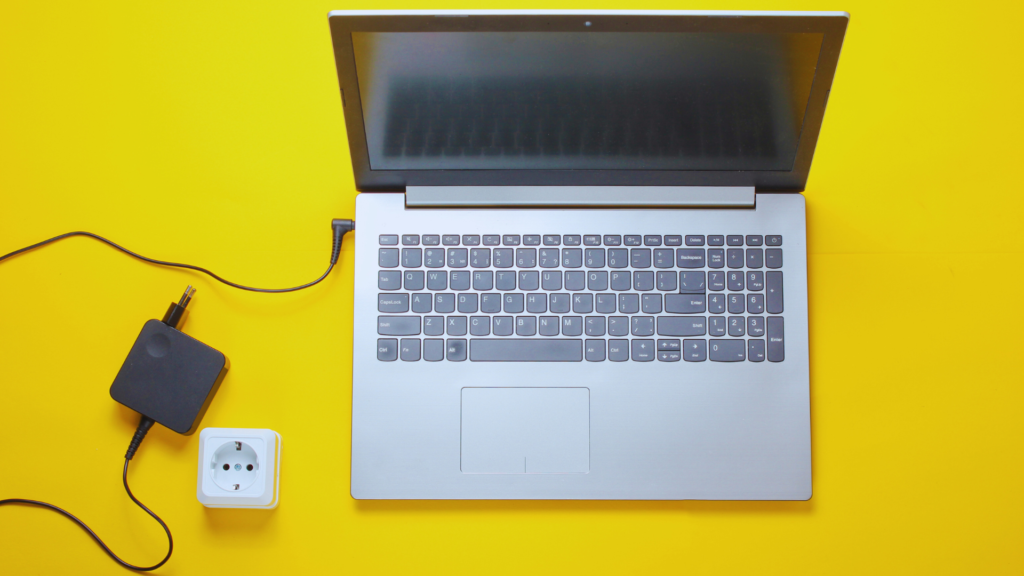
Navigate through Dell’s Charger Options
When selecting a charger for your Dell laptop, the first step is understanding the available options. Dell provides a range of chargers, each tailored to specific laptop models and user needs. Here’s a quick overview:
- Standard AC Adapters:
- Basic chargers that connect to a standard electrical outlet.
- It is suitable for everyday use and has various wattages to match laptop requirements.
- USB-C Chargers:
- These chargers have a versatile USB-C connector and are compatible with Dell laptops and other devices.
- Ideal for users seeking a universal charging solution.
- Dell Slim Power Adapters:
- They are designed for portability without sacrificing power.
- They are sleek and lightweight, making them convenient for on-the-go users.
Compatibility Insights for Dell Laptops
Understanding the compatibility of each charger type with your Dell laptop model is crucial. Here’s a brief guide:
- Check Your Laptop’s Manual:
- Refer to your Dell laptop’s manual or specifications to identify the compatible charger types and wattage.
- USB-C Compatibility:
- Ensure your laptop has a USB-C port if opting for a USB-C charger.
- Check Dell’s compatibility lists for specific models that support USB-C charging.
- Slim Adapter Suitability:
- Thin power adapters are versatile but may have particular compatibility requirements.
- Confirm that your laptop model is listed as compatible with tiny adapters.
By familiarizing yourself with the available options and understanding your laptop’s compatibility requirements, you can make an informed decision when choosing the suitable Dell charger. In the next section, we’ll delve into the intricacies of Dell charger model numbers and how deciphering them can guide your selection process. Stay connected for a deeper dive into the world of Dell laptop charger.
Section 2: Unveiling Dell Charger Varieties
Essential Charger Types for Dell Laptops
When it comes to Dell laptop charger, understanding the available varieties is crucial. Dell offers a range of charger types to accommodate different laptop models. The most common ones include:
- AC Adapters: Standard power adapters that connect to an electrical outlet.
- USB-C Chargers: Featuring the versatile USB-C connector, these chargers offer compatibility with a wide range of Dell laptops and other devices.
- Dell Slim Power Adapters: Sleek and lightweight chargers are designed for portability without compromising power delivery.
Decoding Dell Charger Model Numbers
Dell chargers come with specific model numbers; deciphering them is critical to ensuring compatibility. The model number typically contains wattage, voltage, and connector type information. For instance, a model number like “PA-12” might indicate a 65W adapter.
Understanding these codes helps you choose the correct charger for your Dell laptop, ensuring optimal performance and longevity.
In the next section, we’ll delve into the factors influencing your decision when opting for a particular Dell charger. From wattage considerations to connector types, we aim to empower you with the knowledge needed to make an informed choice. Let’s continue the exploration.
Section 3: Optimizing Performance with Dell Chargers
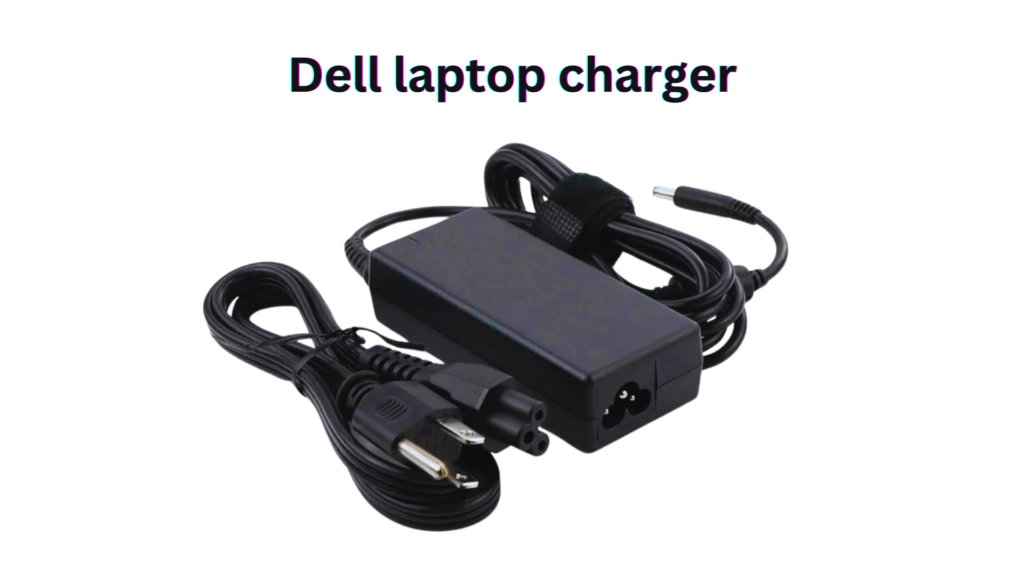
Maximizing Charging Efficiency
Efficient charging is not just about plugging in; it’s about doing it right. To maximize the charging efficiency of your Dell laptop, consider the following tips:
- Use Original Dell Chargers: Opt for genuine Dell chargers explicitly designed for your laptop. This ensures compatibility and efficient power delivery.
- Match Wattage Requirements: Using a charger with the correct wattage is crucial. While a lower-wattage charger may work, it can result in slower charging and potential performance issues.
- Avoid Overcharging: Overcharging can impact battery health. Disconnect the charger when your laptop reaches full charge to maintain long-term battery efficiency.
Impact of Charger Wattage on Dell Laptop Performance
Understanding the wattage of your Dell charger is paramount. The wattage directly influences charging speed and the laptop’s performance. Here’s a quick breakdown:
- Higher Wattage: Charges the laptop faster, which is ideal for resource-intensive tasks.
- Lower Wattage: Slower charging, suitable for lighter usage and maintenance charging.
Choosing the correct wattage ensures your Dell laptop receives the optimal power required for its specifications, contributing to a smooth and responsive performance.
As we proceed, we’ll explore the intricacies of Dell charger connectors and their role in maintaining a seamless power connection. Stay tuned for valuable insights into maximizing your Dell charging experience.
Section 4: Navigating Dell Laptop Charger Connectors
Understanding Dell Charger Port Types
Dell laptops come with various charging port types and compatibility hinges on matching the charger connector with your laptop’s port. Here are the primary Dell charger port types:
- Barrel Connector: Traditional cylindrical connectors, known as barrel connectors, are common in older Dell laptop models.
- USB-C Connector: Modern Dell laptops often feature USB-C ports for charging. USB-C connectors offer versatility and are reversible for convenient use.
- Slim Tip Connector: Some Dell laptops have slim tip connectors, balancing compactness and compatibility.
Troubleshooting Connector Issues
Encountering issues with the charging connector can disrupt your workflow. Here are troubleshooting tips for common connector issues:
- Check for Physical Damage: Inspect the connector for bent pins, damage, or debris that may hinder a proper connection.
- Verify Compatibility: Ensure the charger’s connector matches the port on your Dell laptop. A mismatch can lead to connectivity problems.
- Clean the Connector: Dust and debris can accumulate over time. Gently clean the connector with compressed air or a soft brush.
You can maintain a stable power connection by understanding your Dell laptop’s charging port type and addressing potential connector issues. In the next section, we’ll explore the essential features to look for in Dell laptop chargers, ensuring a safe and efficient charging experience. Stay with us as we unravel the intricacies of powering up your Dell device.
Section 5: Essential Features in Dell Laptop Charger
Safety Measures in Dell Chargers
Ensuring the safety of your Dell laptop and yourself is paramount when it comes to charging. Dell laptop charger often incorporate safety features, including:
- Overvoltage Protection: Guards against voltage spikes that can potentially damage your laptop.
- Short Circuit Protection: Prevents damage caused by short circuits, enhancing the overall safety of the charging process.
- Temperature Control: Monitors and regulates the temperature during charging to prevent overheating.
These features not only protect your laptop but also contribute to the longevity of the charger itself.
Related: Best Dell Laptop Charger USB-C Type
Advanced Charging Technologies
Dell laptop charger may incorporate advanced technologies to enhance the charging experience:
- Adaptive Charging: Adjusts the charging rate based on the battery’s condition, optimizing charging efficiency.
- Fast Charging: Some models support fast charging, significantly reducing the time required to charge your Dell laptop.
- Energy Efficiency: Chargers designed with energy efficiency in mind contribute to a more sustainable and eco-friendly charging process.
Comprehending these attributes empowers you to select a Dell laptop charger that suits your needs and preferences. In the following section, we will engage in a detailed comparative assessment of different models of Dell chargers. As you progress through this guide, you’ll learn to make a well-informed choice when picking the ideal charger for your Dell laptop. Join us on this exploration as we navigate the varied terrain of Dell laptop charging solutions.
Section 6: Comparing Dell Laptop Charger Models
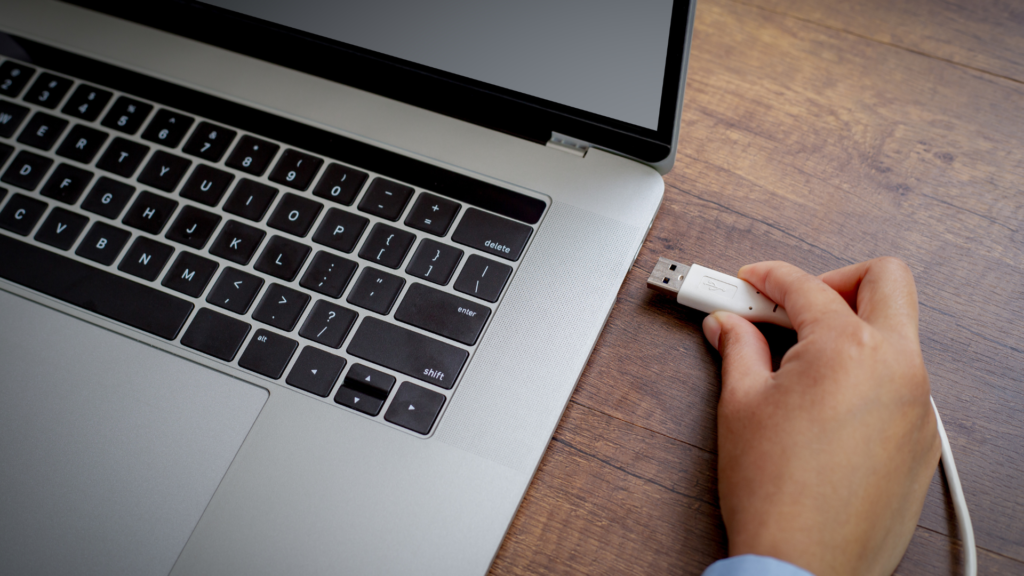
Top-Rated Dell Charger Models
Navigating through the multitude of Dell charger models can be overwhelming. Here, we highlight some top-rated models renowned for their performance and reliability:
- Dell XPS Charger Series: Ideal for XPS laptop users, these chargers often come with high wattage, fast charging capabilities, and compatibility with various XPS models.
- Dell Inspiron Charger Series: Tailored for Inspiron laptops, these chargers offer a balance of power and efficiency, catering to the diverse needs of Inspiron users.
- Dell Latitude Charger Series: Designed for Latitude laptops, these chargers often feature durability and compatibility with various Latitude models.
User Reviews and Recommendations
Before making a final decision, it’s valuable to consider user experiences. Check online reviews and user recommendations for specific Dell charger models. Look for feedback on factors such as:
- Durability: Assess the charger’s build quality and longevity.
- Compatibility: Ensure the charger works seamlessly with various Dell laptop models.
- Charging Speed: Consider feedback on how quickly the charger replenishes the laptop’s battery.
You can make a knowledgeable decision that harmonizes with your expectations by thoroughly examining user feedback and carefully considering your Dell laptop’s unique requirements.
In the subsequent segment, we will share insightful tips from experts on extending your Dell charger’s lifespan and upholding peak charging performance. Accompany us as we reveal the secrets to guaranteeing your Dell laptop’s dependable and adequate power supply.
Section 7: Tips for Prolonging Dell Laptop Charger Lifespan
Best Practices for Charger Maintenance
Maintaining the longevity of your Dell laptop charger involves adopting simple yet effective practices:
- Treat with Caution: Steer clear of bending or twisting the charging cable, and when unplugging, grasp the plug instead of the cord to avert any potential damage.
- Appropriate Storage: When the charger is unused, stow it in a superb, dry location, clear of extreme temperatures. Employing cable organizers can be beneficial in preventing any unwanted tangling.
- Steer Clear of Sharp Bends: Resist the temptation to form sharp bends or kinks in the cable, as this can undermine the integrity of the internal wires and result in operational problems.
Avoiding Common Charging Pitfalls
To guarantee an uninterrupted and dependable charging experience, remain vigilant about these prevalent challenges:
- Using Non-Genuine Chargers: Opt for authentic Dell chargers to guarantee compatibility and prevent potential damage to your laptop.
- Ignoring Warning Signs: If you notice any fraying, exposed wires, or overheating, replace the charger immediately to prevent safety hazards.
Charging in Extreme Conditions:
- Avoid charging your Dell laptop in extremely hot or cold conditions, as drastic temperatures can affect the laptop charger and the battery.
By adhering to these maintenance practices and steering clear of common pitfalls, you can prolong the lifespan of your Dell charger, ensuring a dependable power source for your laptop.
In our next segment, we’ll explore the critical aspect of finding the correct wattage for your Dell laptop. Understanding wattage requirements is vital to optimizing charging speed and overall performance. Join us as we unravel the intricacies of selecting the appropriate charger wattage for your Dell device.
Section 8: Finding the Right Wattage for Your Dell Laptop Charger
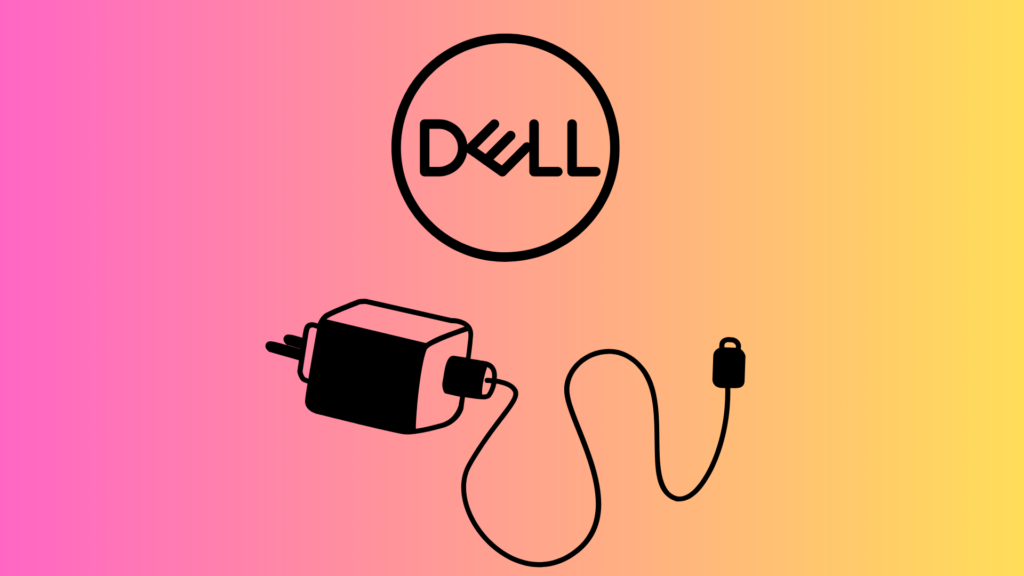
Wattage Guidelines for Different Dell Models
Determining the correct wattage for your Dell laptop charger is pivotal to ensuring optimal charging and performance. Refer to the following guidelines based on the Dell laptop series:
- XPS Series: XPS laptops often require higher wattage due to their advanced specifications. Aim for chargers in the range of 65W to 130W for efficient charging.
- Inspiron Series: Inspiron laptops typically have varying power requirements. Check your laptop’s specifications or refer to the user manual for the recommended wattage.
- Latitude Series: Latitude laptops, known for their durability and business-oriented features, commonly use chargers ranging from 45W to 90W.
Impact of Wattage on Charging Speed
Understanding the relationship between wattage and charging speed is essential for a seamless charging experience:
- Higher Wattage: Chargers with higher wattage can deliver more power to the laptop, resulting in faster charging times.
- Lower Wattage: While suitable for maintaining a charge, lower-wattage chargers may take longer to replenish the battery.
Choosing the correct wattage ensures efficient charging and contributes to the overall health of your Dell laptop’s battery.
In the subsequent section, we’ll explore the critical aspect of ensuring the authenticity of Dell chargers. Identifying genuine chargers is crucial to avoid compatibility issues and potential risks. Stay with us as we unveil the strategies for differentiating between authentic Dell chargers and counterfeit alternatives.
Section 9: Ensuring Authenticity: Dell Chargers Buying Guide
Identifying Genuine Dell Chargers
In a market flooded with options, distinguishing between authentic Dell chargers and counterfeit replicas is crucial. Here are strategies to ensure you’re purchasing a genuine Dell charger:
- Check Dell’s Official Website: Refer to Dell’s official website or contact Dell support to obtain a list of authorized retailers. Purchasing directly from Dell or reputable authorized sellers minimizes the risk of acquiring counterfeit products.
- Inspect Packaging and Labels: Genuine Dell chargers have specific packaging standards and labels. Look for holographic images, serial numbers, and accurate Dell branding on the packaging.
- Verify Connectors and Build Quality: Authentic Dell chargers exhibit high build quality, with sturdy connectors and well-insulated cables. Counterfeit chargers may have substandard materials and poor craftsmanship.
Avoiding Counterfeit Charger Pitfalls
Understanding the risks associated with counterfeit chargers is essential for safeguarding your Dell laptop and personal safety:
- Compatibility Issues: Counterfeit chargers may not provide the required power output or lack the necessary safety features, leading to compatibility issues and potential damage.
- Safety Hazards: Substandard materials used in counterfeit chargers can pose safety hazards, including electrical shocks, fires, or damage to your laptop.
- Lack of Warranty: Genuine Dell chargers typically come with a warranty. Counterfeit products need more assurance, leaving you without recourse if issues arise.
Remaining watchful and giving precedence to authenticity empowers you to invest in a Dell charger that adheres to high-quality standards, guaranteeing your laptop’s secure and dependable charging experience.
As we near the end of our comprehensive guide, the final section will focus on troubleshooting common Dell charger issues. Understanding how to identify and resolve potential problems ensures a hassle-free charging experience. Join us as we uncover solutions to common charging issues, making your Dell charger usage as smooth as possible.
Section 10: Troubleshooting Dell Laptop Charger Issues
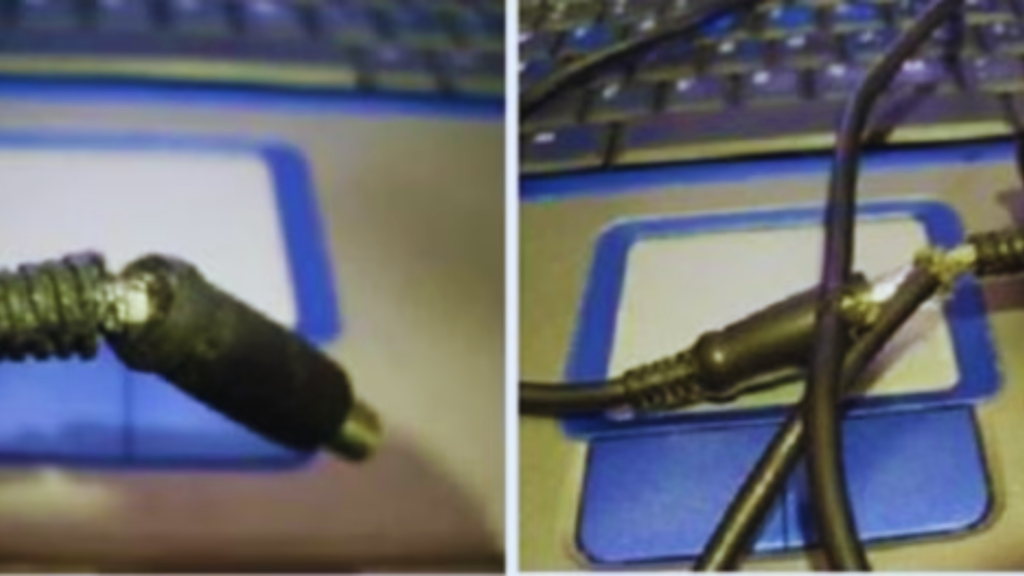
Common Charger Problems and Solutions
Encountering issues with your Dell charger can be frustrating, but many common problems have simple solutions. Let’s explore some troubleshooting tips:
- No Power Output:
- Check the electrical outlet and ensure it’s functioning.
- Inspect the charger for physical damage or loose connections.
- Slow Charging:
- Verify that you’re using a charger with the appropriate wattage for your laptop.
- Close unnecessary applications to reduce power consumption.
- Overheating:
- Ensure proper ventilation around the charger and laptop.
- Clean the charging port and connector to prevent overheating.
When to Consider Replacement: Dell Charger Troubleshooting Guide
While some issues are quickly resolved, sure signs may indicate the need for a replacement:
- Visible Damage:
- If you notice frayed wires, exposed cables, or damaged connectors, it’s time for a new charger.
- Inconsistent Power Output:
- Chargers that provide intermittent power or fluctuating voltage may pose a risk to your laptop.
- Compatibility Issues:
- If you’ve confirmed using a genuine Dell charger but still experience compatibility problems, it might be time for a replacement.
By addressing common issues promptly and understanding when to consider replacement, you can ensure a reliable and consistent power supply for your Dell laptop.
Congratulations on completing this comprehensive guide to Dell laptop charger! Armed with knowledge on choosing the suitable charger, optimizing performance, and troubleshooting issues, you’re well-equipped to make the most of your Dell laptop charging experience. If you have further questions or concerns, contact Dell support or refer to their official resources for additional assistance. Happy charging!
Conclusion
In conclusion, navigating the realm of Dell laptop charger requires a blend of knowledge and informed decision-making. By understanding the charger options offered by Dell, decoding model numbers, and considering compatibility factors, you can confidently select the correct charger for your specific laptop model. Whether you opt for the standard AC adapters, embrace the versatility of USB-C chargers, or choose the portability of Dell’s slim power adapters, this guide has equipped you with the insights needed for a seamless charging experience. Remember to prioritize authenticity, practice proper maintenance, and troubleshoot common issues effectively to ensure the longevity and reliability of your Dell laptop charger. This comprehensive understanding allows you to power up your Dell laptop confidently and efficiently. Happy charging!
(FAQs)
Q1: Can I use any charger with my Dell laptop Charger?
A1: While using chargers with the same connector is possible, it’s crucial to match the wattage and ensure compatibility. Using non-genuine chargers may result in slower charging, compatibility issues, or potential damage to your Dell laptop.
Q2: How do I find a suitable charger for my Dell laptop?
A2: Refer to your laptop’s manual or specifications for recommended chargers. Dell’s official website also provides compatibility information. To ensure a suitable match, match the connector type, wattage, and charger model number.
Q3: Are USB-C chargers compatible with all Dell laptops?
A3: USB-C chargers offer versatility, but not all Dell laptops support USB-C charging. Check your laptop’s specifications or Dell’s compatibility lists to confirm USB-C compatibility.
Q4: How can I identify genuine Dell chargers?
A4: Purchase from Dell’s official website or authorized retailers to ensure authenticity. Check for holographic images and accurate branding, and inspect the build quality to differentiate genuine chargers from counterfeit alternatives.
Q5: What should I do if my Dell charger overheats?
A5: Ensure proper ventilation around the charger and laptop. Clean the charging port and connector to prevent overheating. If the issue persists, consider replacing the charger to avoid safety hazards.
Q6: Can I use a higher-wattage charger for faster charging?
A6: A higher-wattage charger is generally safe if it’s within the laptop’s specifications. However, avoiding exceeding the maximum wattage recommended for your Dell laptop is essential to prevent potential damage.
Q7: How often should I replace my Dell laptop charger?
A7: If you observe any noticeable damage, irregular power output, or compatibility issues with your charger, it’s advisable to replace it. While adopting proper maintenance practices can prolong the charger’s lifespan, regular checks remain a prudent approach.